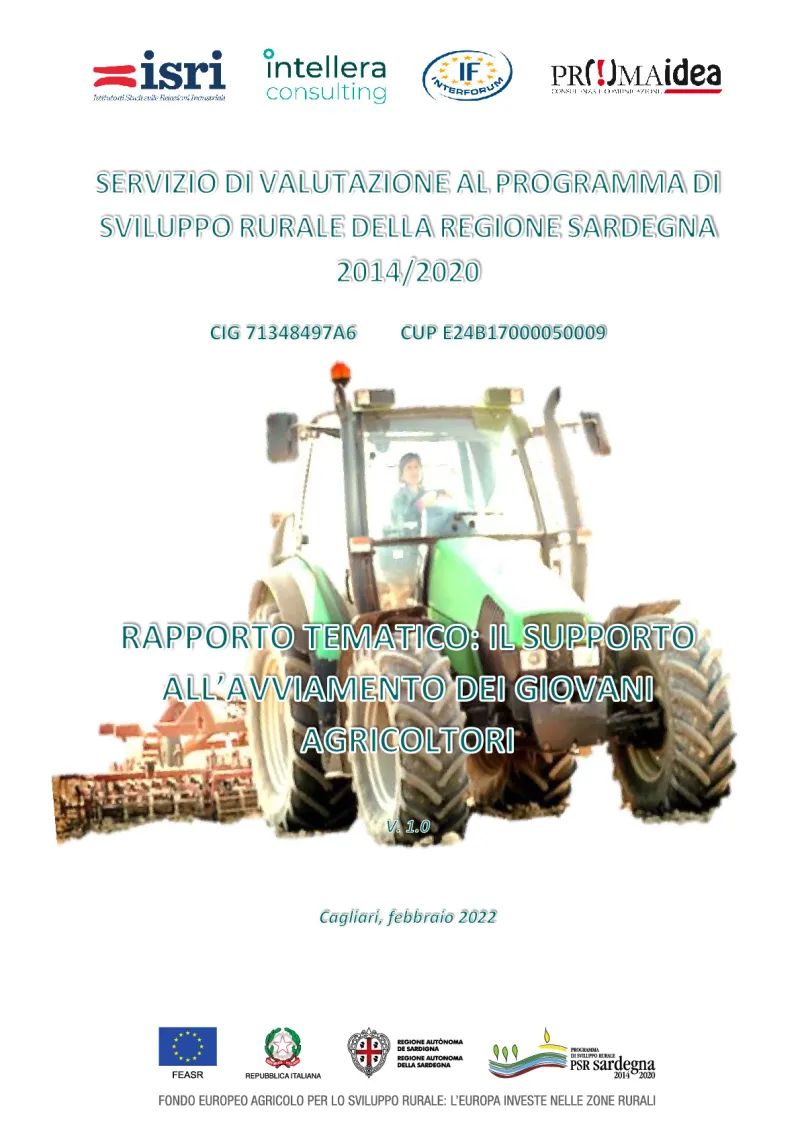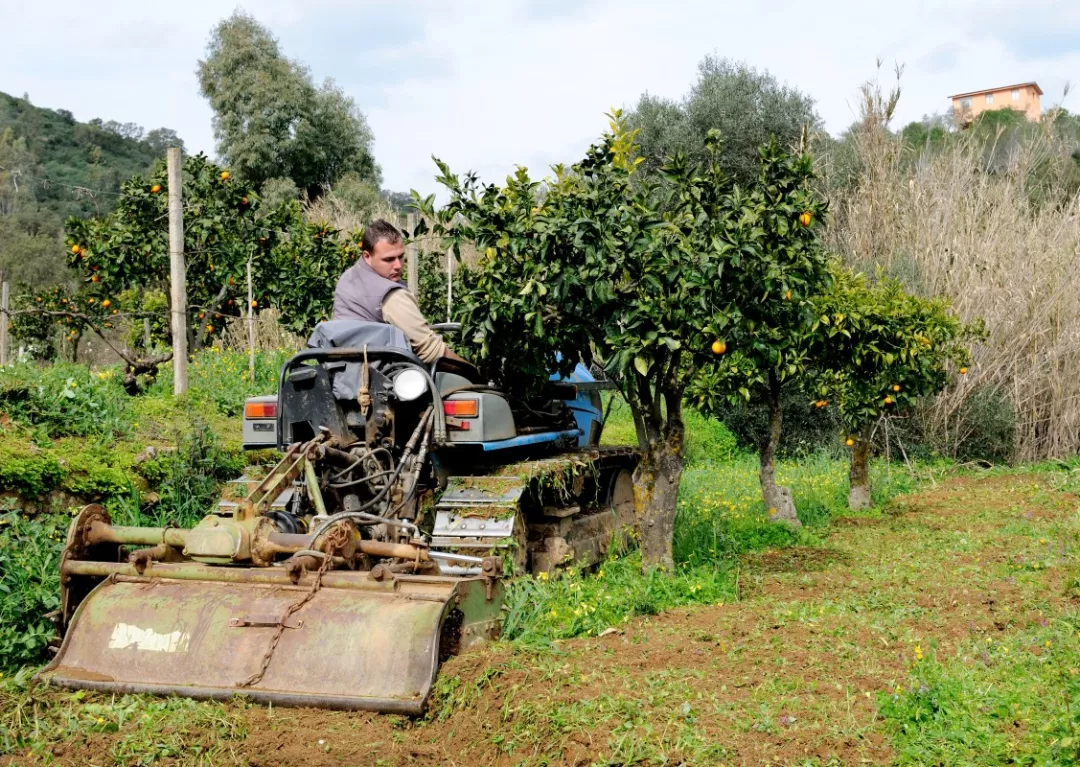Thematic report: support for the start-up of Sardinian young farmers
This study evaluates the impact of the Sardinian 2014-2022 Rural Development Programme's measures on supporting young farmers and farm start-ups. It provides valuable insights for upcoming policy adjustments for the current CAP programming period.
- Italy
- 2014-2022
- Socio-economic impacts


Policies for generational renewal have played a very important role in Sardinia's RDPs. From the 2000-2006 RDP to the current one, almost 6 000 young people have been supported in setting up a farm, with total expenditure on premiums approaching EUR 200 million.
In the 2014-2020 period, this was one of the first policies to be implemented, and thanks also to expedited procedural arrangements, the selected beneficiaries were able to start their business development plans as early as 2017.
The knowledge and reflections on the topic were particularly useful in the 2014-2020 period, both for adjusting to new procedures and for a more in-depth rethinking of the policy in the next programming period.
This evaluation consulted two types of beneficiaries and compared (1) the beneficiaries of the first call for measures under measure 112 of the 2007-2013 RDP and (2) those beneficiaries of the first call for Measure 6.1 of the RDP 2014-2020.
Concerning primary data and information, a telephone survey was conducted in March 2015 on a sample of 229 eligible individuals for funding. In closed form, the questionnaire covered the applicants' motivations and expectations, the costs incurred in setting up, the improvement measures carried out on the holding, and the results achieved.
All the 2007-2013 RDP beneficiaries were re-examined regarding subsequent programming, identifying which holdings were found to have submitted an application for support under the 2014-2020 RDP and to have been eligible for funding. This, firstly, provided information on the survival and viability of these companies and, secondly, foreshadowed possible development strategies through the measures in which they intended to participate.
These assessments were based, first, on the analysis of the Italian Informative Agricultural System (SIAN) database on implementation, which made it possible to define the quantitative and temporal profile of the implementation of the measures in question (6.1 and 4.1) as well as to identify the entities that participated in the relevant calls and those that were then eligible for funding, with the possibility of knowing their age, sex and residence.
Based on data on resettlement applicants, an online survey was conducted in 2019, with 378 respondents. At that time, the list of applications eligible for funding was not complete or definitive since it had increased considerably. For this reason, the questionnaire was administered to all who had applied for the first call for Measure 6.1 without distinguishing between the funded and the non-funded. More than 180 respondents are currently eligible for funding.
In most cases, young beneficiaries who set up on a family holding claimed they would have become holders without the aid. Around half of the beneficiaries did not have specific training or experience at the time of setting up. The companies' land where young people settled was almost entirely rented or borrowed. The investments that have affected the largest number of companies concern, first of all, land improvement, then machinery and plants, then real estate and finally, intangible and technological assets. New construction relates to the buildings most closely linked to the primary activity. The contribution of the RDP was decisive for the realisation of a large part of the real estate investments. More importantly, productivity grew by around 7.6% per year on average. In addition, three years after setting up, the results of strengthening the farms can be observed within the same technical-economic context.
Author(s)
ISRI, Intellera Consulting, IF Interforum, Primaidea